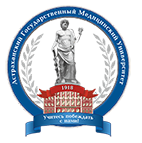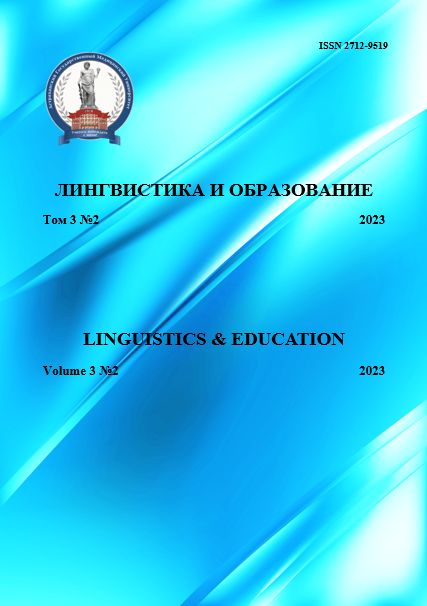Астрахань, Астраханская область, Россия
УДК 61 Медицина. Охрана здоровья. Пожарное дело
УДК 001.4 Язык науки. Научная терминология. Номенклатура
В данной статье рассматривается причина появления консубстанциональных лексем в терминологическом поле «хирургический инструментарий» в немецком языке. Результаты анализа терминов данного терминологического поля показывают, что интеграция медицинского словарного фонда и общеупотребительной лексики, а также связанные с ней тенденции к дифференциации и специализации, являлись основной характеристикой понятийного аппарата медицины на протяжении всей истории существования медицинской науки в Германии. Процесс терминологизации сопровождался частичным переосмыслением общеупотребительных лексем. Наличие консубстанциональных лексем в терминологическом поле «хирургический инструментарий» свидетельствует о том, что научное познание опирается на результаты обыденного познания.
терминология, медицинская терминология, термин, медицинский термин, хирургический инструментарий, обыденное знание, консубстанциональные лексемы
Language is our habitat, which is located in our consciousness, in our memory and changes its shape with every movement of thought, every manifestation of our personality [1, с. 67]. Language of medicine, reflecting the most important area of human knowledge, is one of the oldest languages for special purposes. It is “a self-developing mechanism, formation and disappearance of terms in this mechanism is one of the main aspects of the historical process of its development" [2, с. 138].
Medical terminology is also being studied in the context of the paradigms of cognitive linguistics and cognitive terminology. During its centuries - old history medical language has accumulated a large number of means for expressing of scientific concepts, the understanding of which attracts the attention of terminologists. So, the thinking of a person, his consciousness develops not only science itself, but also his language – the lexical system.
It should be noted that there is not any science without the formed terminological system, terminological fields. Medicine is one of the most important and significant areas of knowledge for a person. The development of medicine, like any other science, is associated with the cognitive development of society (with the accumulation of experience and knowledge), observed at each stage of its formation and accompanied by the formation of a large number of terms in which scientific information is recorded.
The main reason for the appearance of new terms is the human need for communication, the transfer of person’s knowledge to others. A term formed to denote special concepts is the main tool of knowledge, because analyzing the changes in medical terminology one can understand “the direction of evolution of medicine itself and its terminological system, the relationship of medicine with other branches of knowledge and the history of society” [3, с. 37]. A concept as a mental structure of storing knowledge and human experience includes mental attitudes reflected in the collective consciousness of the ethnos and which are pragmatically significant for the members of the society [4, с. 69].
The terminological field “surgical instruments” is characterized by the presence of words borrowed from the common lexis and other fields of knowledge.
The purpose of this article is to identify the reasons and kind of borrowing from common vocabulary and other fields of knowledge.
In this paper, the terminological field “surgical instruments” of the German language was analysed by means of definitional and conceptual analysis. The material for the study is simple, complex terms, which belong to the terminological field “surgical instruments” in the German language.
Findings
Language is closely “connected with human thinking and mental activity” [5, с. 46]. Involvement of language units from non-special vocabulary into medical terminology proves that “scientific knowledge is based on the results of everyday knowledge” [6, с. 45]. It is possible because of interconnection of everyday and rational knowledge. Such interaction explicates the essence of the process of cognition – we understand the new concept through the old one. In the mind of a person “the concept of an object is fixed and becomes the base for designating the specifics of a surgical instrument” [7, с. 100]. But at the same time it is not a simple borrowing from common vocabulary. The formation of scientific knowledge leads to the fact that “the terminating method of designation is more often used in language; a new concept has a special designation, because of correlation of this concept with the others” [8, с. 114]. This explains the ever-increasing number of terms, the formation of consubstantial lexemes. We agree with definition of consubstantial lexemes given by Sorokina E.A. The term is a consubstantial one if it is used in two or more terminologies with its unchanged sound-letter form; consubstantial word functions in common language and at the same time as a term in special terminology [9, с. 87].
According to the results of the research throughout the whole existence of medical science in Germany the main characteristic of medical terminology was the integration of medical and common vocabulary or borrowings from other areas of knowledge, as well as the trends towards differentiation and specialization [10, с. 403]. Due to this process the following commonly used lexemes have firmly become a part of the terminological field “surgical instruments” of the German medical language: die Nadel – needle, die Schere – scissors, der Faden – thread, das Messer – knife, der Löffel – spoon, die Schlinge – loop, der Spiegel – mirror and others.
The process of terminologization was accompanied by a partial reconceptualization of these words. As a result, consubstantial lexemes appear in this terminological field. The reason of using such terms is the fact that “general language information imprinted in the linguistic consciousness of people ... is subject to associative-figurative reconceptualization during the process of professional scientific activity and turns into terminological information” [11, с. 12].
It was found that terminologized lexemes “while retaining a certain semantic community with generic word, receive motivation from the linguistic substrate; it means that they have the same way of presenting internal form of the concept” [12, с. 164]. At the same time, if we compare the term and the generic word we can say that there are a number of semantic differences between them. For example, the generic word der Haken (hook) in K. Duden’s dictionary has the following meaning zu einem Winkel, einem Halbkreis oder s-förmig gebogener Gegenstand, an dem etwas aufgehängt werden kann [13, с. 451] – a tool that contains 90° curved portion with semicircle or C-shape used for holding things (our translation). In the terminological field “surgical instruments” of the German language, this term, having changed the conceptual content, has the meaning of a surgical instrument that looks like a hook designed to expand and hold wound edges or fix body tissues during surgical operation. For example, der Augenhaken (ophthalmic hook) – a surgical instrument for expanding and fixing the wound edges of the eyelids and the eye membranes, as well as for retraction of the eye muscles. An example of the use of borrowings from other areas of knowledge is the term der Schlauch (sonde, tube) – biegsame Röhre aus Gummi oder Kunststoff, durch die Flüssigkeiten oder Gase geleitet werden [13, с. 774] (a flexible tube made from rubber or plastic used for moving or containing liquids or gases). First sonde (tube) was used in medicine for stomach lavage. Later, with the progress of medicine, the semantics of the term der Magenschlauch (gastric tube) has changed. In 1868, gastroscopy was put into practice by the German therapist Adolf Kussmaul (visual examination of the walls of esophagus, stomach by means of special device – a scope (a flexible tube with camera and a light)). Since 1871 (Wilhelm von Leibe) tube has been used for diagnostic purposes for aspiration of gastric and duodenal contents.
Borrowing generic words or terms from other areas of knowledge by medical terminology confirms the validity of conclusions made by V.V. Lazarev that “in the structure of thinking, scientific knowledge is only a superstructure over ordinary consciousness, which is as ancient as man himself” [14, с. 16].
Conclusion
The environment in which a person lives has an influence on him; it forms his thinking, worldview. Because of the process of our cognition to understand the new concept through the old one there is interconnection of everyday and rational knowledge. It explains the presence of consubstantial lexemes in the terminological field “surgical instruments” of the German language. However, as the results of the study showed, the process of formation of consubstantial lexemes in the terminological field “surgical instruments” is not a simple borrowing. These lexemes have undergone the terminologization process accompanied by rethinking of generic words. And terminologized units have new cognitive features in the language of medicine.
1. Шкатова Л.А. Вузовский дискурс // Лингвокультура университета: коллективная монография. Челябинск, 2019. - С. 67-72.
2. Лукоянова Т.В. Некоторые терминологические аспекты клинических наименований в немецком языке // Язык медицины: материалы всероссийской научно-методической конференции «методические и лингвистические аспекты международной медицинской терминологии» / Ред.кол.: Н.Н. Крюков, В.Ф. Новодранова, Е.В. Бекишева, Т.В. Куркина, О.М. Рылкина. - Самара: ООО «Порто-принт», 2013. - Выпуск 4. - С. 138-143.
3. Величкова С.М. Структурно-семантические особенности медицинской терминологии в сфере стоматологии (на материале русского и немецкого языков): дисс. … канд. филол. наук. - Белгород, 2014. - 214 с.
4. Дискурс, концепт, жанр: коллективная монография / Отв. ред. М.Ю. Олешков. - Нижний Тагил, НТГСПА, 2009. - Том. Выпуск 1. - Сер. Язык и дискурс. - 428 с.
5. Касимцева Л.М. Психолингвистика в изучении медицины // Гуманитарные исследования. - 2015. - № 3 (55). - С. 46-52
6. Голованова Е.И. Введение в когнитивное терминоведение: учебное пособие. - М.: Флинта: Наука, 2011. - 135 с.
7. Киселева Л.А., Маджаева С.И. Эволюция термина // Язык медицины: международный межвузовский сборник научных трудов в честь юбилея В.Ф. Новодрановой / тех. редактор О.Г. Сполуденная. - Самара, СамГМУ: Изд-во KRYPTEN-Волга, 2015. - Выпуск 5. - С. 99-104.
8. Маджаева С.И. Медицинские термины в динамике // Язык медицины: международный межвузовский сборник научных трудов в честь юбилея В.Ф. Новодрановой / тех. редактор О.Г. Сполуденная. - Самара, СамГМУ: Изд-во KRYPTEN-Волга, 2015. - Выпуск 5. - С. 113-117.
9. Сорокина Э.А. Особенности русского профессионального языка в области лингвистики // Вестник Северного (Арктического) федерального университета. Серия: Гуманитарные и социальные науки. 2021. - №1. - С. 82-91.
10. Лукоянова Т.В. Метафоры-термины в подсистеме «хирургический инструментарий» в немецком языке // Когнитивные исследования языка. Вып. XX: От когнитивной лингвистики к когнитивному терминоведению: сборник научных трудов / отв. ред. вып. Л.А. Манерко. - М.: Ин-т языкознания РАН; Тамбов: Издательский дом ТГУ им. Г.Р. Державина, 2015. - С. 401-408. URL: https://www.mendeley.com/reference-manager/reader/f8b927fc-c73f-3c24-bc8d-8ea789565910/5c46a0d2-1268-5ffd-39cb-d5fb181679ce
11. Володина М.Н. Когнитивно-информационная природа термина и терминологическая номинация: диссертация ... доктора филологических наук. - Москва, 1998. - 345 с.
12. Косова М.В. Закономерности переосмысления общеупотребительной лексики в процессе терминологизации // Вестник Нижегородского университета им. Н.И. Лобачевского. - 2004. - № 1. - С. 163-172.
13. Duden Das Bedeutungswörterbuch: Wortbildung und Wortschatz: 18500 Stichwörter mit grammatischen und phonetischen Angaben; alle Stichwörter mit Definitionen und Beispielen; Synonyme und Wortbildungen sowie Infokästen zu leicht verwechselbaren Wörtern. - 3., neu bearbeitete und erw. Auflage - Mannheim [u.a.]: Dudenverl, 2002. - Bd.10. - 1103 s.
14. Лазарев В.В. К теории обыденного/когнитивного познания (От Коперника к Птолемею) // Вестник Пятигорского гос. лингвист, ун-та. Пятигорск. Вып. 2, 1999. - С. 25-34.










